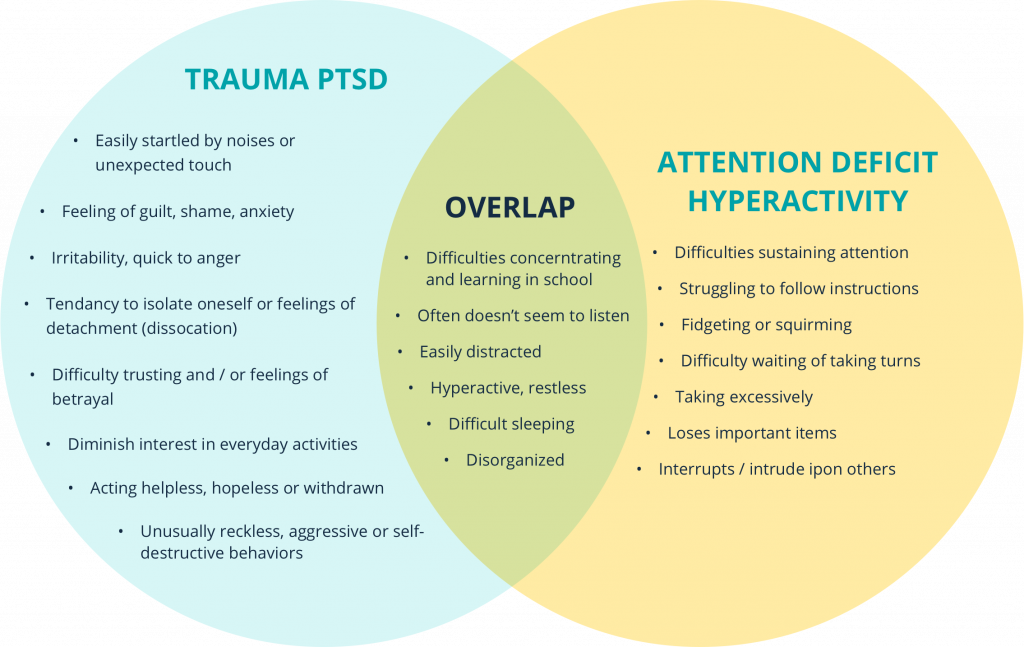
Post-traumatic stress disorder (PTSD) is a mental health condition that is triggered by a terrifying event.
All children experienced stressful events which can affect them both emotionally and physically. Most of the time, children recover quickly and well. However, sometimes children who experience severe stress, such as
Children could experience this trauma directly or could witness it happening to someone else. When children develop long term symptoms (longer than one month) from such stress, which are upsetting or interfere with their relationships and activities, they may be diagnosed with Post Traumatic Stress Disorder.

These symptoms must be present for at least 2 weeks

Diagnosis
The first step is to talk with a healthcare provider to arrange an evaluation. For a PTSD diagnosis, a specific event must have triggered the symptoms. Because the event was distressing, children may not want to talk about the event, so a health provider who is highly skilled in talking with children and families will be needed.
A very highly skilled child psychotherapist will be able to distinguish a child with Post Traumatic Stress Disorder (PTSD) versus Attention Deficit Hyperactivity Disorder (ADHD).
Here is the guide for clinicians on overlapping symptoms of ADHD and PTSD.

Once the diagnosis is made, the first step is to make the child feel safe by getting support from parents, friends, and school, and minimizing the change of another traumatic event to the extent possible. Psychotherapy in which the child can speak, draw, play or write about the stressful event can be done with the child and the family.
Child Parent Psychotherapy (CPP) is the evidence based intervention model for children under 6 years old. This treatment is to support and strengthen caregiver-child relationship and assist child to process the trauma and restore child’s mental health